Check out some books by your tutor Fiona Veitch Smith … (click on the book covers to find out more)
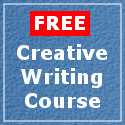 This is the second session of eight in our online creative writing course, in which we’ll be exploring how to write a short story. Now that your creative juices have been stirred, you should be ready to start writing; if not, go back and try some of the exercises in the first session of this course, releasing your creativity.
This is the second session of eight in our online creative writing course, in which we’ll be exploring how to write a short story. Now that your creative juices have been stirred, you should be ready to start writing; if not, go back and try some of the exercises in the first session of this course, releasing your creativity.
Writing short stories versus writing novels
Most new prose writers have the beginnings of at least one novel in their drawer. They will get to chapter three or four and give up because they don’t have the skill, confidence or stamina to carry on. If you’d never run a marathon you would be a fool to enter the Great North Run without first attempting some shorter distances. Short stories are the best place for new writers to hone their craft. But don’t be fooled, they’re not necessarily the easiest option. It takes a great deal of skill to write a short story that’s effective – you will have to curtail any tendency to ramble on. And not all writers need to be novelists either. I believe F. Scott Fitzgerald was quite comfortable as a short story writer and only produced the occasional novel out of pressure from his publisher, while the great Raymond Carver never wrote a novel in his life.
Short stories are an endangered species
There was once a time when every magazine carried some short fiction. Sadly, that time has passed. Now, apart from some weekly women’s magazines in the UK, short stories have retreated between the dusty covers of literary publications. The situation has become so bad that a group of leading writers and publishers got together to start the Save the Short Story Campaign and are beginning to make good progress.
Short stories appear to be doing far better across the pond in America where the art form is more respected and accessible to ‘ordinary’ readers. However, there are signs that this may not continue. Read Stephen King’s thoughts on the decline of the American short story. You can check out Writer’s Market for a list of North American short story outlets.
How long is a short story?
So what is a short story? Short stories can be anything from 500 to 6000 words. Anything under 500 words tends to be labelled ‘flash fiction’ or ‘micro fiction’ (although some would argue it’s still a short story) and anything over 6000 is moving into novelette or novella territory. I would argue that a short story is something that can be read comfortably in one sitting and doesn’t leave you starving or bloated. Popular magazines tend to accept work of between 1000 – 2000 words, more literary ones go for longer. Children’s short stories tend to be under a thousand words. If you would like to write for younger readers, check out some of my articles on writing for children.
A short story is a slice of life
A short story is a slice of life. As such, you should narrow the time frame and geographical location of the piece. One plot, two or three characters and no more than two locations (one would be better) should fit into a short story. If this is too tight a fit perhaps you should be writing a novella or a novel.

Fig 1: Short story time span
How to begin a short story
Start your piece as close to the turning point or climax of the story as possible. Most writers take a paragraph or so to find their feet. On a second reading they will delete the first paragraph as unnecessary exposition or padding. Your first sentence is crucial; it should be filled with energy, intrigue and forward momentum. The reader should be stopped in their tracks and not be able to turn away until they’ve read the whole thing. The first sentence should raise questions that need to be answered. Take for example these openers:

- ‘My mother was making me a dress.’ (From ‘Red Dress – 1946′, Dance of the Happy Shades)
- ‘General Sash was a hundred and four years old. ‘ (From ‘A Late Encounter With the Enemy’, The Complete Stories)
- ‘Fact is the car needs to be sold in a hurry, and Leo sends Toni out to do it.’ (From ‘Are These Actual Miles’, The Oxford Book of American Short Stories)
Exercise 4: Jot down questions that arise from these openings and what, if anything, makes you want to read on. If you can get hold of copies of the stories do so. Ask yourself: were the questions answered? Was I satisfied with the answers? Was the answer what I expected?
Exercise 5: Use a trigger image, phrase or thought (see Releasing Your Creativity) then write down a leading, opening sentence. What questions might be raised? How might you answer those questions in a short story? What setting would be most appropriate to answer the questions? How long will it take for the question to be answered? Can you think of any characters that might help you tell the story and answer the question? (We will be looking at building a character in a future session and try writing another story from their perspective). Look over your answers and see whether or not the outline of a short story is emerging. If not, try another sentence or another trigger image.
Beginning, middle, end
Every short story should have an opening that is developed in the middle to build tension which reaches its climax towards the end, after which there is a rapid conclusion. For those of you who have studied any dramatic or literary theory you will recognise this progression as typical Aristotlean Three Act Structure. In a short story you should not spend too much time in the ‘first act’ where development, setting and exposition take place, and should start your narrative as close to the inciting incident (aka point of change, first turning point or initial crisis) as possible. The inciting incident is the event which upsets the apple cart of the characters’ ordinary world and compels them to act in a certain way in order to bring balance or closure to their disrupted environment. In the Red Dress it is the school dance which the narrator fears will bring humiliation. She then tries to fake illness in order to get out of it, then, when this fails, tries to remain as invisible as possible at the dance. We will look at how a character acts to bring or avoid change change in a future discussion.
Exercise 6: What is the ‘ordinary world’ of your opening sentence? Remember, this may be an abnormal world to most readers, but it should reflect the status quo of your characters before it is challeged or shaken up. What challenges this status quo? This is your inciting incident. Using only three paragraphs (50 – 60 words each) or less, start writing your short story. In this short space you should establish your ordinary world, your main character and the inciting incident of your story.
Obstacles, setbacks, climax and resolution
This is the outline of the rest of your story. Imagine a graph of building tension.

Fig 2: Dramatic development in three act structure
Your story should follow that arc by allowing your character to face obstacles, setbacks and minor victories on the way towards reaching the dramatic climax and bringing resolution.
Exercise 7: If you are graphically minded draw yourself a rough graph or jot down the beginning, middle and end of your story. Now write the story and fill in the gaps. If you’re not so graphically minded, just jot down a few key phrases or events that might carry your story forward to a possible conclusion. Don’t worry, this isn’t cast in stone, and you can change the beginning, middle, end and anything in between at any time. Many writers just write to find their voice. That’s fine. Once you have a first draft, go back and see if it has some kind of structure or arc. If not, you may have to tweak it a little.
I hope this has given you some insight on how to write a short story. Happy writing!
The next creative writing course session is writing from a point of view.
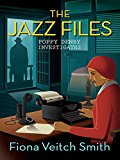
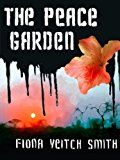
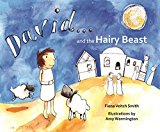
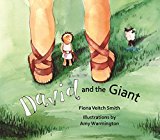
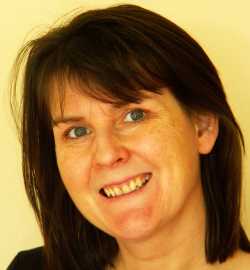 Welcome to The Crafty Writer's free online creative writing course, presented by Fiona Veitch Smith, a freelance journalist, editor, author, playwright, screenwriter and writing teacher. I hope that you'll see a dramatic improvement in the quality of your writing as you work through this course.
Welcome to The Crafty Writer's free online creative writing course, presented by Fiona Veitch Smith, a freelance journalist, editor, author, playwright, screenwriter and writing teacher. I hope that you'll see a dramatic improvement in the quality of your writing as you work through this course. 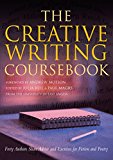
I’m writing a short story as an option for a college final I’m doing for a post-modern literature class. This is very helpful! I really like how you have exercises to go along with the advice. I’m looking forward to doing them because I struggle primarily with the beginning and getting started, and now I’m looking forward to doing this in a creative way instead of fearing what may have been a nail-bitingly hard challenge! Thank you!
Hi Andrew, yes getting started is always the hardes. I also struggle to end stories and rewrite them loads of times. Good luck with the story.
Hello Fiona,
My name is marcus hamlett and i want more than anything to write a novel. Ive tried over the last year to write but have only got 5 chapters written. I have no college under my belt because im in the military and dont have time to take courses. Where is the best place to find an easy course that i can understand without having prior college classes or experience in fictional writing? thank you for your time.
Hello Marcus, well a good place to start would be this course! Simply start at the beginning on the home page.
Happy writing!
Fiona
The Crafty Writer
I like your work. I think it makes a lot of sense. Do you have another blog? Many thanks, Brian O’Raleigh (Author)
Hi I couldn’t get hold of the copies, maybe a brief outline of the stories would be good. But I really like this structure and course out;line and find it very helpful
Thanks
Mick
The way you teach us how to write a story in step by step instructions and in the mean time paving us grounds to create our own short story automatically help us to bring out the ability we all posses as some kind of an artist.
Glad to be of help, Buddima.
I am really enjoying the sessions,I am learning more about myself and what kind of writer I can be. I am thinking about writing a memoir type of book based on my experience and knowledge of the subject. And of course,I can learn more about the topic myself to understand me better. I have a mental disorder that is often misinterpreted especially in the news. I am a schizophrenic. And I hope that the book series can better inform people and have stigmata ,stereotypes can be broken.
I hope so too, John. Strength to your pen.
Learning how to shape your characters,their lives and how they interact with other characters and figures. Like a trip I was on to visiting my parents,I might just draw from my personal experiences and journals. I can’t wait to start the story!
Happy writing, John!
My last name is Setian, I am not giving away my first name. I am only 12 years old and this course is seriously helping me with my writing career. I have wanted to be a writer since before I could read. I learned to read at the age of four and my passion for writing has only gotten stronger. People tell me that I am a strong poet, and I have gotten several blue ribbons for my poetry, however, my long lasting dream is to be an expert in mythology and use this knowledge to write books. I have written several short stories in my life time, but only entered one in a contest, I got a red ribbon. I blame it on the fact that there was a word limit so I had to cut the part that made it flow smoothly. Your course has already put a twist on my view of writing, and I am only on the second session. Thank you for taking your time to write this course for writers that need to develop their skills.
Good luck with your writing Setian, I hope your will win myany more ribbons.
What do you mean exactly, by saying ‘ordinary world’?
The everyday life and circumstances of your character.
Are we supposed to finish our short story before moving onto the nexr part?
You can if you want to, Holly. These are just exercises to help you get started on a story. If you want to complete it, that’s fine. If not, don’t worry, you can continue working on it in future sessions.
I’m building a story, but I seem to be long winded, too much detail. I’m still enjoying the exercise and I guess there are no hard and fast rules, just general guidelines. I will try harder to stay within the set parameters.
Thanks for this free information on how to get started; your graph makes total sense to me, on how to build my story up. I am a visual person, and found your graph soooo interesting!
I will be doing the next few free courses.
Thanks so much for sharing this with us.
King regards,
Priscilla Olivier.
Glad it helped, Priscilla, despite it not being very well drawn! (art is not my area of expertise )
)
I really enjoyed your sessions can you give me personal guidance because i am in creative field
Feedback on your writing is not part of this course. However I do offer a paid for critiquing service where I give feedback and professional advice. If you are interested please contact me.
This exercise stretches your thought processes.-
hello, iam interested in writing short stories and i would love some more information if possible, i really enjoyed reading this page and out of all the others i looked up, this one is the most inspiring. i hope to see and read more, thank you for your time
Hello David, this is all I have available at the moment. I am however writing a book in which I will be expanding on this material. I should finish it later this year.
I have a query Fiona. Some people say that climax is not just a single point but rather a phase. I want to know exactly when the climax begins and when it ends. Let me know if this is correct – In the Harry potter story, the point when Voldemort realizes that Harry is destroying his horcruxes is the ‘start of the climax’. When Harry decides to sacrifice himself in the woods is his ‘moment of decision’. Harry killing Voldy is the ‘precise climatic point and also the end of climax’, after which the ‘falling action’ takes place, where all is good and happy. Please tell me if my understanding is correct.
Hello Vaska,
A climax can be a single point or a sequence. The bigger the story, the
broader the climax in terms of page space / screen time. A film or a novel
will tend to have a sequence leading up to a climax. In a short story it can
be just a single moment or a longer sequence – that’s up to you. Your
analysis of the Harry Potter story is correct.
Good luck with your writing
Fiona
Hi
I have a question and I hope it’s ok to ask but in exercise 6 when we are writing our ordinary world and inciting incident my incident sounds more past tense like my character has already lived it and is looking back for example my first line is ” I thought winning the lottery would solve all my problems” would I need a new line or can I work with this?
I’m sorry if I’m not supposed to ask I’m just a little confused
Thanks
Jess
Hi Jess, I don’t mind questions that clarify things – just not for feedback on actual writing. Yes an inciting incident can already have happened and the character can look back on it. So work with what you’ve got. Happy writing!
Thank you for your course
Came here for curiosity, stayed for the quality and effectiveness of the course.
Nice!
Thank you Fiona,
Your guidelines are impressive and apt to my thoughts on short story writing to begin with as stated above that a short story is a slice of life-
begining-middle-end encompassing anecdotes and experiences